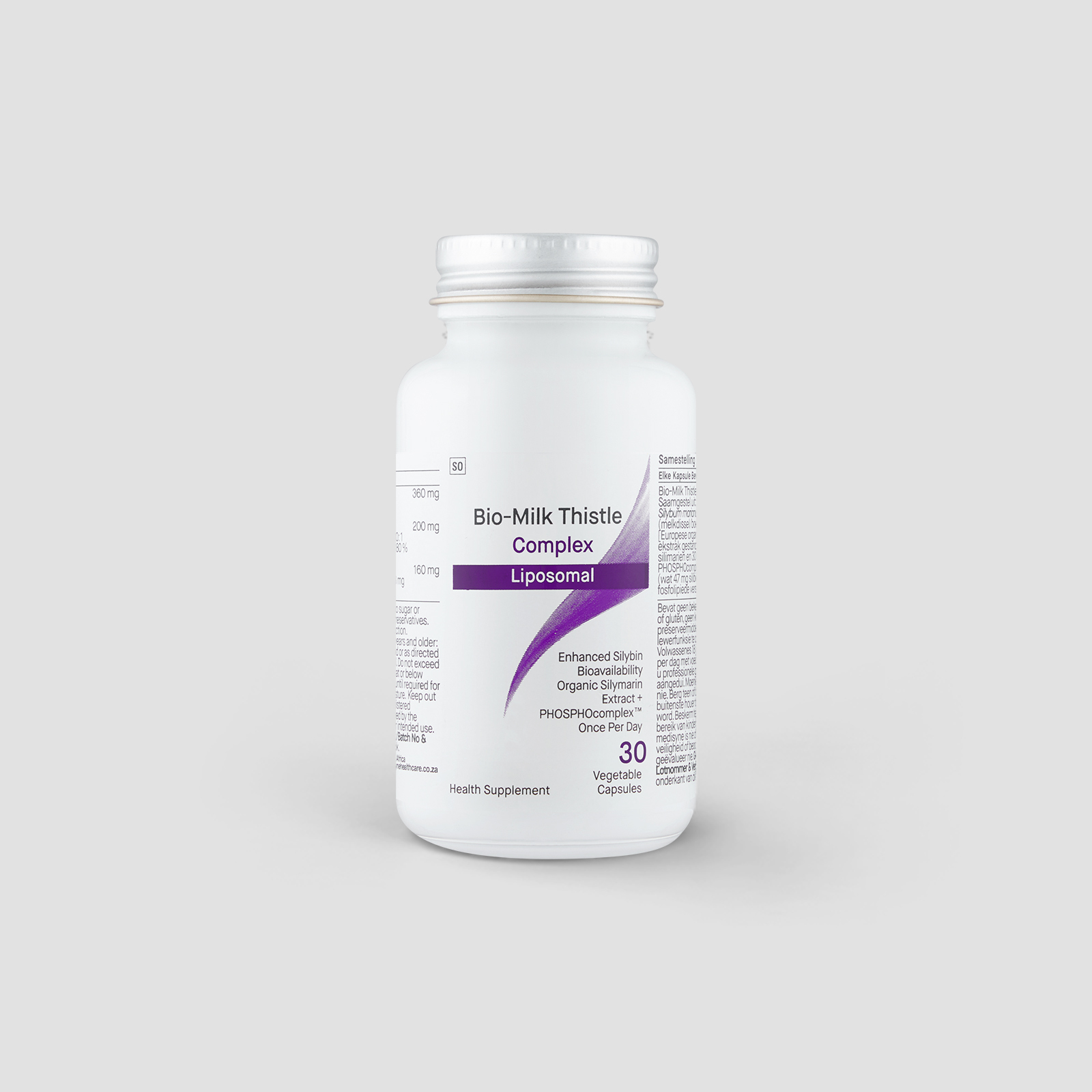A detox regimen with glutathione and milk thistle can help boost the body’s natural defenses, reducing the load on your liver and improving your overall well-being.
Glutathione: The “Master Antioxidant”
Glutathione is a naturally occurring antioxidant found in almost every cell in the body. It is composed of three amino acids: glutamine, cysteine, and glycine. This powerful compound plays a critical role in various biological processes, and provides broad-spectrum immune support, helping to promote a healthy immune response. Furthermore, glutathione is involved in various cellular processes, particularly in the liver where it plays a significant role in detoxification. [10]
1. Detoxification Phases: The liver detoxifies through a two-phase process, and glutathione is especially active in Phase II, where it conjugates toxins and makes them less harmful. The conjugation process renders the intermediates water soluble which enables the kidneys to excrete them. Furthermore, by binding with heavy metals, pesticides, and metabolic byproducts, glutathione reduces the liver’s toxic load, protecting it from damage. [1]
2. Cellular Repair: Defense Against Oxidative Stress and DNA Damage: Glutathione’s antioxidant capabilities are vital in defending cells against oxidative stress, which can escalate during periods of stress or poor diet, such as the festive season, and may cause cell damage. Free radicals generated from high-calorie foods, alcohol, and environmental pollutants can lead to oxidative stress. Glutathione’s antioxidant action not only prevents DNA damage but also promotes DNA repair. Studies have shown that glutathione aids in the activation of cellular enzymes involved in DNA repair, which is crucial during periods of high oxidative stress. [3]
3. Preventing Alcohol-Induced Oxidative Stress: Alcohol metabolism increases ROS (Reactive Oxygen Species) production, which can lead to oxidative stress. Glutathione helps to neutralise these ROSs, protecting the liver from alcohol-induced damage and supporting overall liver health, particularly during times of increased alcohol intake. [4]
How Can You Maximise Your Glutathione Intake?
While the body produces its own glutathione, levels can be depleted by stress, poor diet, and ageing. These two sources can increase your levels of glutathione naturally:
Dietary Sources: Foods like spinach, avocados, asparagus, and sulfur-rich vegetables such as broccoli and cauliflower can help promote glutathione production.
Supplementation: Glutathione supplements (in liposomal or reduced forms for better absorption) can provide a direct increase in glutathione levels in the body. [5]
Milk Thistle: Liver Protection and Detox Enhancement
Milk thistle is a flowering herb native to the Mediterranean, known for its powerful liver-protective properties. Its active compound, silymarin, has antioxidant, anti-inflammatory, and antifibrotic effects, making it a popular natural remedy to support liver health. [11]
Liver Repair and Regeneration: Milk thistle has been shown to support the regeneration of liver cells. Silymarin, a flavonoid complex within Milk thistle, stimulates protein synthesis within liver cells, which can promote cell repair and may encourage the development of new liver cells, especially in cases where existing cells have been damaged by toxins such as alcohol. Research shows that silymarin’s regenerative properties are particularly effective in supporting individuals who have had liver damage due to poor dietary choices or increased alcohol consumption. [6]
Neutralises Free Radicals: Silymarin acts as a potent antioxidant, which helps protect liver cells from oxidative stress and inflammation. Oxidative stress occurs when there’s an imbalance between free radicals and antioxidants, often leading to cellular damage. Silymarin’s antioxidant properties help to neutralise these free radicals, reducing damage and promoting a healthier liver environment. [7]
May Reduce Liver Inflammation: By neutralising oxidative agents, silymarin can also reduce liver inflammation. Chronic liver inflammation, often from toxins or a poor diet, can contribute to more significant liver issues over time. Thus, silymarin’s ability to manage inflammation is essential for long-term liver health. [8]
How Can You Maximise Your Milk Thistle Intake?
These two sources can increase your levels of Milk thistle naturally:
Supplements: Milk thistle extract is widely available in capsule or tincture form. Look for a supplement with standardised silymarin content to ensure you’re getting an effective dose.
Herbal Teas: Drinking Milk thistle tea can offer a gentle, supportive boost for your liver, especially in the evenings when your liver is most active in detox processes. [9]
Incorporating glutathione and milk thistle into your post-holiday plan can provide your body with the support it needs to detoxify after overindulgence. This balanced approach enables you to enjoy holiday indulgences while entering the New Year feeling revitalised and ready to take on the year ahead.
Always consult with a healthcare practitioner before trying new supplements to ensure they are suitable for your individual health needs.


